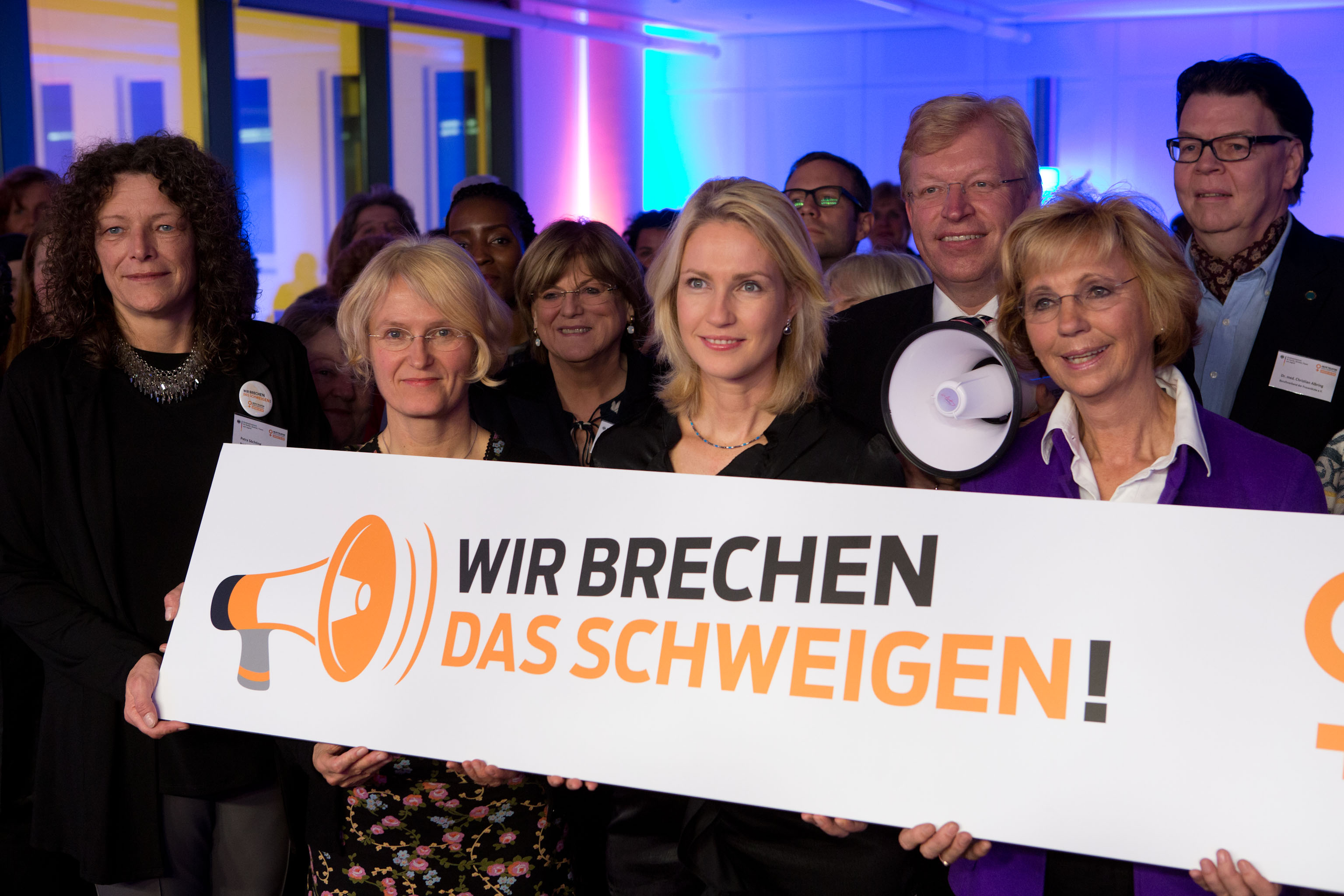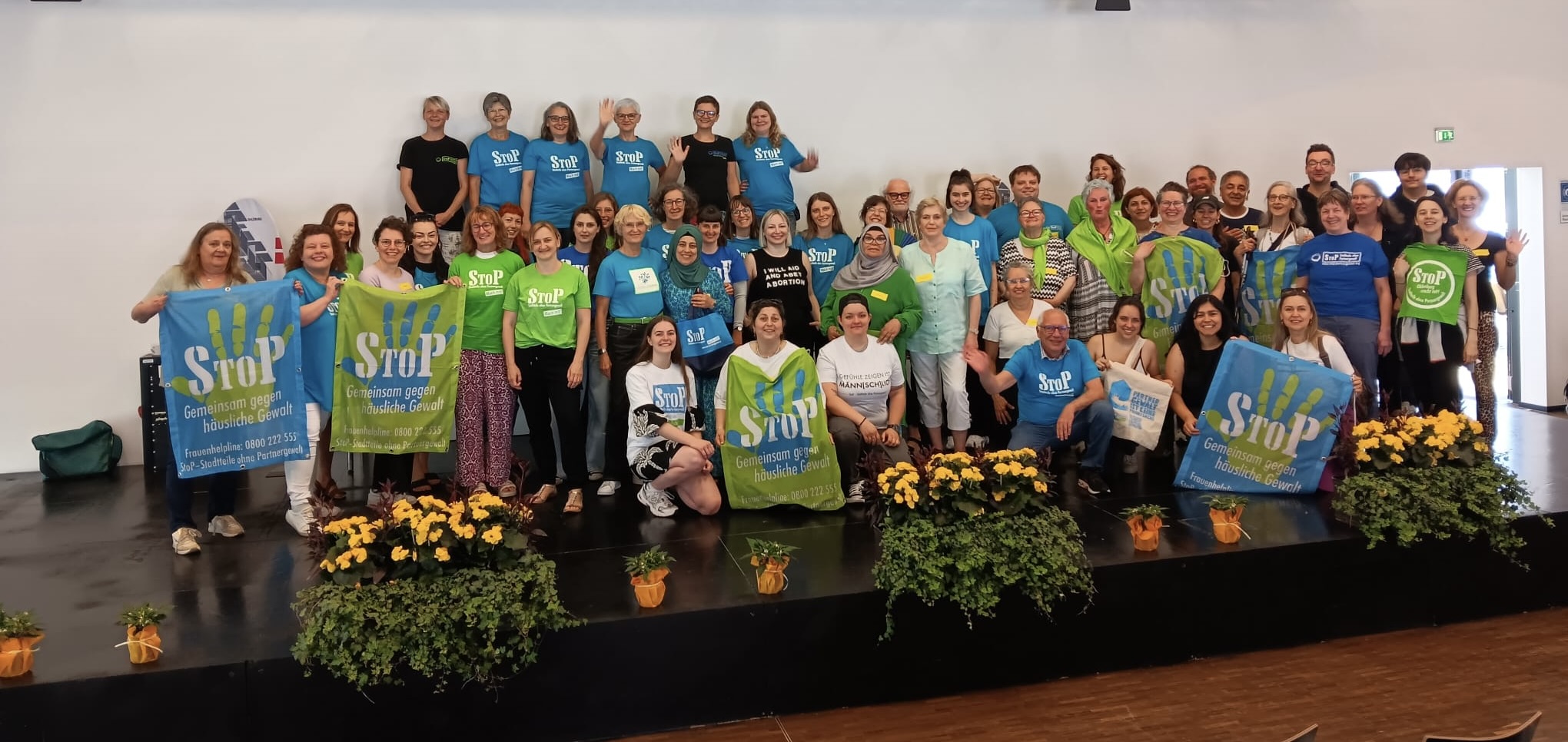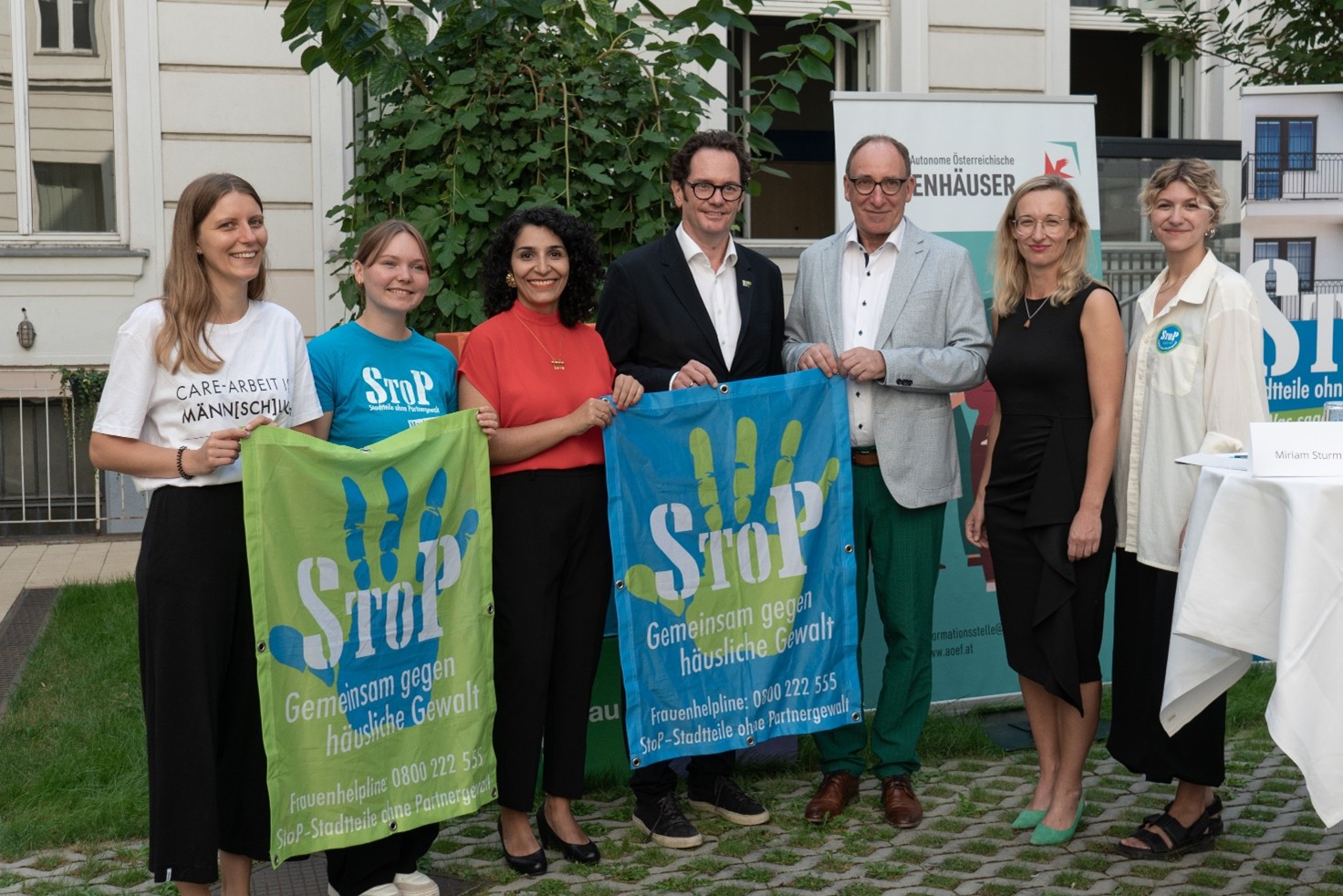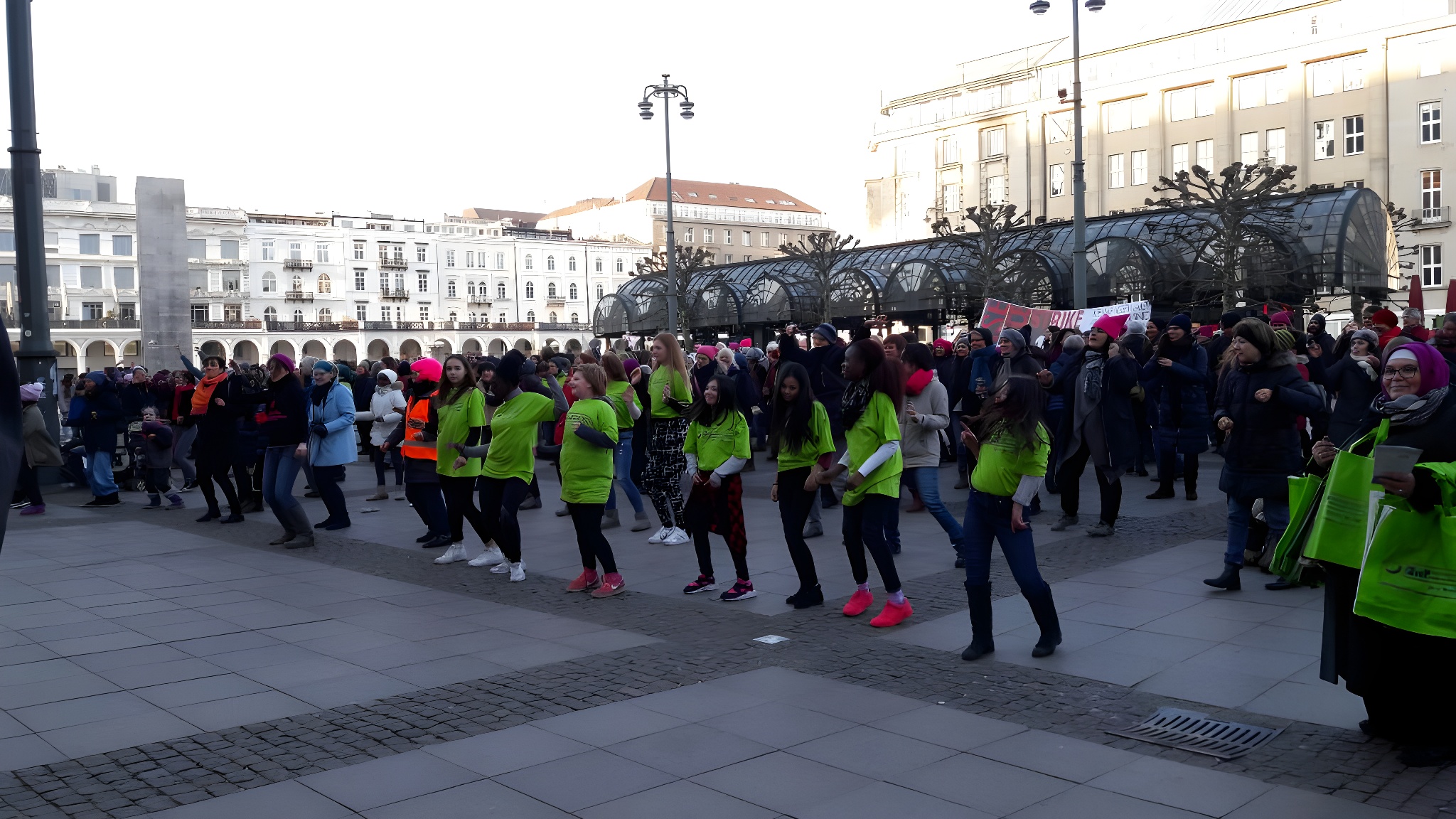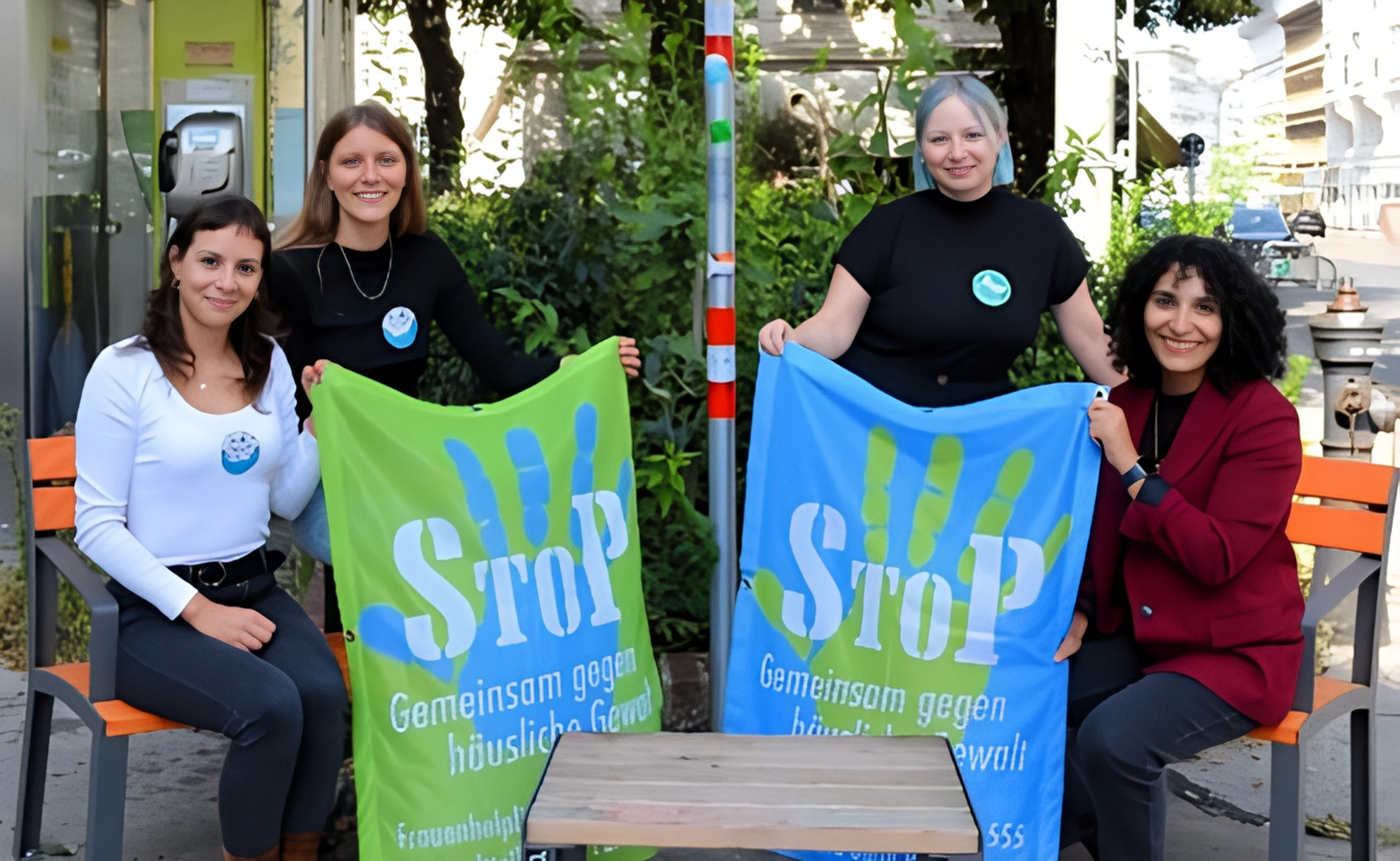The successful implementation of StoP requires money and this requires lobbying, networking and forming political alliances. Progress in preventing and reducing domestic violence depends on changing the attitudes and behaviours of individuals and communities, and thus reducing gender dominance, developing non-violent, respectful interaction and achieving gender equality in society as a whole. This involves, among other things, the provision of financial resources (also for StoP work!), the adoption and implementation of laws and political programmes at local and supra-regional level, the equal participation of women in assets and income, in policy and decision-making processes, and the transformation of traditional cultural concepts.
Neighbourhoods, villages and towns are closely linked to and influenced by supra-regional developments and decisions. However, these decisions can also be influenced from the local level, the bottom up.
A characteristic of community organising is that it takes this into account and acts accordingly. It links local community building with work on overarching structures; it organises people at grassroots level and links them with other relevant actors in the district, with organisations, institutions and the professional help system – it creates a network in the community. With this network it reaches out beyond its own community.
It raises the question of the connection between people's living environment and society: Community organising creates networks that hold, support and sustain people if they want to play an active role in shaping their environment and thus in political decisions. This also includes the networks of professionals in the neighbourhood itself, which help to secure the progress achieved. But it is precisely through this networking (but also through scandalisation, etc.) that offers a political model of 'bottom up', which is not only aimed at organising counter-power, but also permeates the political forms in our cities in such a way that the residents of the districts are not only heard more, but can also make more and sustainable decisions in and for the local community.
StoP as a social movement from local communities connects with StoP activists in other cities, nationally and internationally. StoP seeks allies for its own cause and in turn supports supra-regional coalitions and campaigns against violence against women, but also, for example, for equal pay, reproductive rights, social justice and the rights of people discriminated against on the basis of gender, body, class or race. A diverse, solidary and socially just society is a prerequisite for preventing domestic violence against women, so that it is reduced and perhaps one day eliminated. As black civil rights and women's rights activist Fannie Lou Hamer said:
“Nobody's free until everybody's free.”
Example
The StoP neighbourhood projects have established contacts with politicians and experts beyond the local neighbourhood, from the regional to the federal level. They invite politicians to learn about StoP's local work and attend meetings with members of parliament from different democratic parties. They take part in regional working groups, national conferences, speak on panels of social and women's organisations and in committees of the Parliament. One principle is that the organisers do not represent StoP's concerns alone, but together with active neighbours, whether in Hamburg City Hall or in the Federal Ministry for Family Affairs.
In the StoP pilot project in Vienna, many organisations, from housing associations to sports clubs, were involved in the StoP work as network partners from the outset. Monthly meetings were held and in-depth knowledge about violence against women was imparted. Within a year, there were 100 network partners who were very interested and attended regularly. These included people in political positions.
StoP groups take part in nationwide protests against femicide, they dance with others at the worldwide celebrated One Billion Rising events on 14 February, they are part of alliances for International Women's Day on 8 March every year, they support campaigns for freedom of choice in pregnancy, some come together at marches for workers' rights on 1 May or at rallies against racism. On 25 November, the International Day on Violence against Women, StoP groups in Germany work together with local ZONTA clubs. In Austria, the Austrian Medical Association dedicated its annual ball, attended by 4000 doctors, to raising funds for StoP. These activities have increased awareness and sympathy for StoP. They have also led to the founder of StoP being awarded the Federal Cross of Merit, Germany's highest civilian honour.
Every year, StoP organisers and activists from all over come together. In 2024, for example, more than 80 delegates from Germany and Austria met in Salzburg. Getting to know each other, exchanging ideas and providing input strengthens skills, solidarity and motivation.
From the outset, StoP has sought contact with colleagues in other countries who share a similar approach. In 2009 and 2015, international conferences were held in Hamburg under the title 'Community Matters' with speakers from Turkey, Austria, the USA, India, South Africa, Uganda and New Zealand on new perspectives and the importance of civil society. This inspired a regular international online exchange that continues to this day.
Since 2023, there has been cooperation at EU level between organisations from 6 countries and the Europe-wide WWP network, who meet for training in the StoP approach and have worked together to produce the StoP Toolbox.

